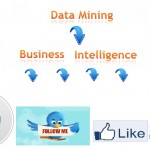 When I talk to people about social media or see how companies are using the tools, the pervasive impression is that it is still used primarily in a campaign orientated way. Social media folks will be required to show evidence of their Facebook campaign or some viral video on YouTube in order to be regarded as a success.
When I talk to people about social media or see how companies are using the tools, the pervasive impression is that it is still used primarily in a campaign orientated way. Social media folks will be required to show evidence of their Facebook campaign or some viral video on YouTube in order to be regarded as a success.
Now I’ve nothing against campaigns on social media, but lets say you conduct maybe two or three of these per year, what are you doing the rest of the time? The problem for me is that by emphasising a campaign orientated approach, it creates a mindset that social media is another advertising platform. The campaign approach is understandable in advertising because you generally only have a budget to do a few campaigns a year. With social however, not only is the environment ill suited to direct sales messages, it’s also often free, thus negating the requirement to limit your activity to a few campaigns.
Wouldn’t it be better if instead of a campaign mindset, your organisation had a strategic mindset? The kind of mindset that has social media at the heart of what it does. The kind of mindset that treats social as an unheralded opportunity to engage with and learn from your customers, and to use this knowledge to craft a sense and respond approach to strategy.
Here are four ways you can use social media to make the sense part of your strategy better.
4 ways to use social media in your intelligence gathering
- Find your curators – Information curation has been a part of the social scene for years. Whereas most of this curation is done around topic areas, if you can find (or create) someone who curates the relevant topics around you and your business, then it can serve as a significantly better source of information than trawling through a database. By collecting information from a variety of sources you avoid the groupthink that is so pervasive. Recruiting these curators from outside of the company is an easy way to avoid company centred thinking. Of course, this curation doesn’t just have to be about you, you can also do it for competitors as well.
- More engagement, less data collection – Whereas previously data gathering took up a significant chunk of time, with social listening tools, and fine curation, you’re freeing up a lot of time to actually engage with people. This is the respond part because it frees up time to solicit ideas and get feedback from your customers, and get them co-creating new products with you. Therefore the ability to engage with a community is now a key skill for the modern employee.
- Drive insight – Do you still use SWOT when doing strategy? How about empowering social media to try a different approach. More and more analytics products are hitting the market that will analyse the social web for you. They’ll be reading blog posts or discussion forums, they’ll be checking out Twitter and Facebook. They’ll give you great insight into what really matters to your customers. They’ll tell you where your strengths and weaknesses are.
- Drive action – I’m sure many of us have been handed reports stuffed to the gills with data. Whilst no doubt thoughtfully produced and full of nice insight, they don’t make it easy to actually make changes. Social media offers you a way to get insights delivered in such a way as it makes driving changes much easier. New social software automatically curates important information collected from the social web and delivers it to decision makers in an easy to understand format. The nice thing is that this information no longer has to exist on a ‘need to know’ basis, it can be shared throughout the organisation, therefore democratising intelligence.
As you can see, there is so much more to social media than merely running campaigns. Your task is to ensure you utilise it to its fullest.
Hear hear. Great post Adi.
Thanks Nick.
Nothing to add really except to say I completely agree.
Great perspective and I really appreciate it. We are so bombarded with ads, and a campaign is basically an elaborate ad. I love the strategy approach because it implies something much more holistic and also attentive to your actual customers. Listening, learning, engaging… all that happens strategically. it can go a long way to building trust and awareness. Campaigns can be part of an overall strategy but should not be the whole deal.
So true! I keep repeating this in my presentations and conferences: social media is a business function, NOT a marketing function. Once companies realize this, we might start seeing more strategic thinking. But as long as it remains under marketing & communications, the "campaign" focus will be a tough one to change…
Cheers,
Frederic
Exactly Frederic. It also helps with the ROI question as it's explicitely asking the question of how social media can help us achieve our core business objectives. If you're applying social to an objective then it becomes a more direct link between what you do and it's benefits to the business, whilst avoiding such fluffy metrics as engagement or reach.
I agree. Social media is great as an overall curation tool and for intelligence gathering info. I think that companies are focusing on campaigns because it was the old school way of doing thinks where campaigns remind them of the old method of advertising. It will take time for companies to realize that social media is so much more since it's the new way of doing business.